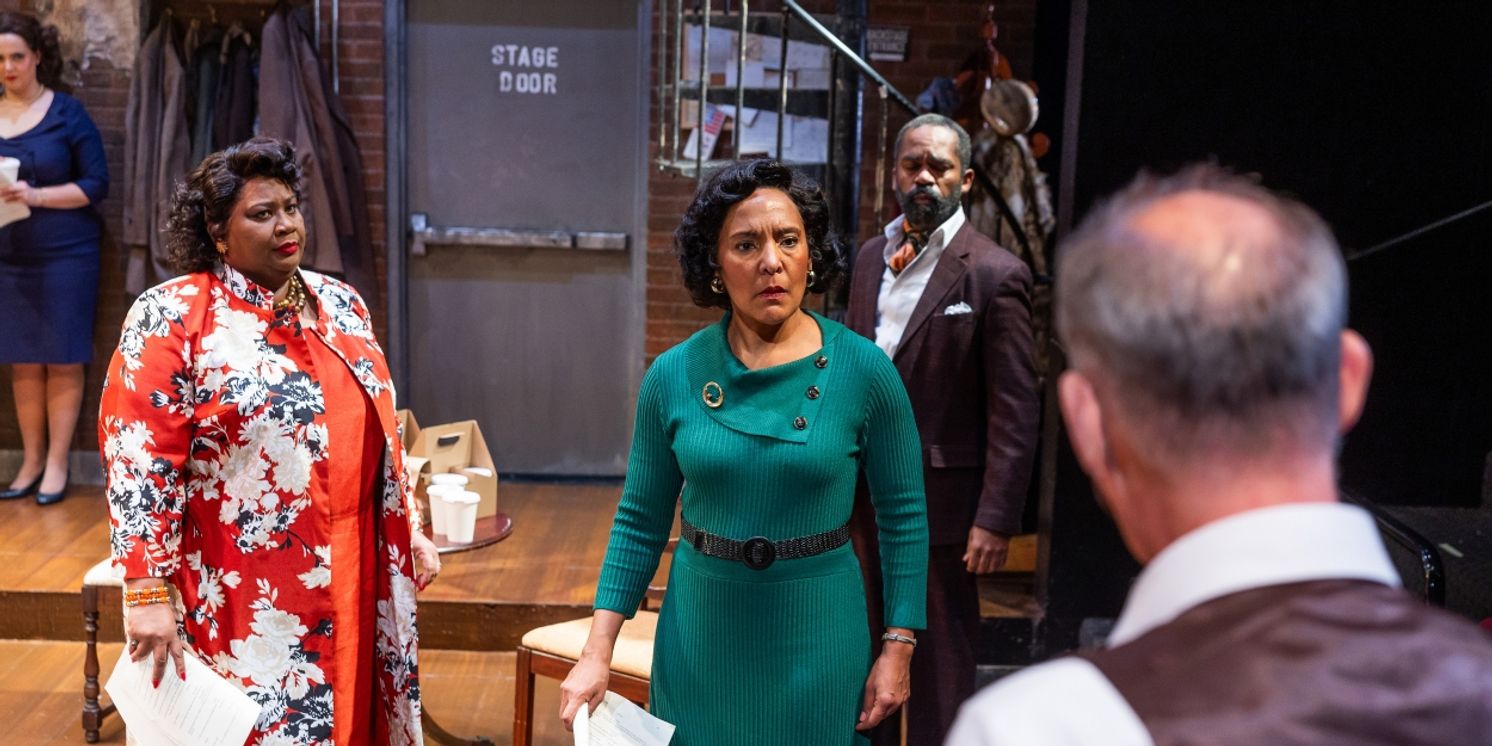Review: Lyric Stage Company's TROUBLE IN MIND Proves Playwright Stood Her Ground for Good Reason
Alice Childress's play runs through February 4.

Alice Childress stood to make history as the first African American woman playwright to have a play on Broadway.
When it came time for the play, “Trouble in Mind,” which had opened to acclaim off-Broadway at the Greenwich Mews Theatre in 1955, to transfer to Broadway, however, producers sought changes to make the piece more palatable to white theatergoers. Childress stood her ground.
After agreeing to a few rewrites, the playwright, novelist, and actress decided she would not compromise her artistic integrity any further, and the Broadway run was canceled. Subsequently, Childress’s friend and fellow writer Lorraine Hansberry became the first African American female to have a play produced on Broadway, with the March 11, 1959, premiere of “A Raisin in the Sun” at the Ethel Barrymore Theatre.
Childress’s first full-length play finally made its Broadway debut on November 18, 2021, in a Tony Award-nominated Roundabout Theatre Company production at the American Airlines Theatre. Through February 4, Boston theatergoers can experience a first-rate Lyric Stage Company mounting of the cleverly crafted 1950s-set dramedy that tells the backstage story of the rehearsals of a new Broadway drama, “Chaos in Belleville,” which professes to condemn the lynching of a young Black man in the South while actually downplaying its horrors.
Brought to life by an excellent cast under the steady hand of director Dawn M. Simmons – co-producing artistic director of the Front Porch Arts Collective, a Black theater company with the mission of advancing racial equity through theater – “Trouble in Mind” centers on a leading Black actress who, like Childress, must stand her ground to maintain her integrity.
The immensely gifted Patrice Jean-Baptiste brings depth and dimension to the role of Wiletta, the actress playing the mother of a young man hanged by a racist lynch mob. A veteran performer, Wiletta has been forced to make many compromises in her career and has finally had enough.
Her face-off with the play-within-the-play’s unctuous white director, Al Manners (the always formidable Barlow Adamson), offers a bracing look at what some Black actors had to endure, and sometimes still endure today, in the name of employment. The white director and his Black leading lady find themselves at loggerheads when she pushes back against his too-easy acceptance of racial stereotypes and false assumptions in a script that she knows will be deeply offensive to the very people it depicts.
As the other actors whose careers will be directly affected, in different ways, if the play never opens, the company also includes the versatile Davron S. Monroe who as Sheldon Forrester, an aged Black character actor, adds another to his growing canon of memorable roles. MaConnia Chesser a stand-out out as the wry Black actress who humorously rails against racist tropes like naming female Black characters for flowers and gemstones – as she prepares to play a character named Petunia alongside Wiletta’s Ruby – while Bill Mootos is chilling as the openly racist white actor, Bill O’Wray.
Rounding out the cast are the always affecting Robert Walsh as Henry, the theater’s elderly doorman; Kadhaj Bennett as John Nevins, the young Black actor hoping and planning for a bright future; Allison Beauregard as the oblivious-to-white-privilege Judy Sears, a Yale-educated young white actress whose primary concern about the play’s possible cancelation is that she may have to move home to Bridgeport, Connecticut; and James Turner as Eddie Felton, the put-upon stage manager.
The production also benefits from Shelley Barish’s meticulously detailed set design, and Rachel Padula Shufelt’s costumes that include Wiletta’s stylishly elegant dresses and Sheldon’s natty suits – complete with both ascots and pocket squares – all shown off to full advantage by Deb Sullivan’s mood-setting lighting.
In the almost seven decades since Childress wrote “Trouble in Mind,” career opportunities have broadened for Black actors, in terms of a greater number of parts and more starring roles. Even the most celebrated of today’s Black actors, however, acknowledge that not all progress has been truly progressive.
Indeed, Viola Davis – winner of the Academy Award for Best Supporting Actress for 2016’s “Fences,” and an EGOT, with an Emmy, Grammy, Oscar, and two Tony awards to her credit – who earned an Academy Award nomination as Best Actress for playing a 1960s Mississippi housemaid in the 2011 feature film, “The Help,” at first had only kind words for the hit movie. Davis later said, however, that she had profound regret about taking the role and does not believe the story is truthful about the Black characters’ lives.
So while a lot has changed since the 1950s, not everything is different. The important points Childress made so well almost 70 years ago still carry a much-needed message today.
Photo caption: Allison Beauregard, MaConnia Chesser, Patrice Jean-Baptiste, Davron S. Monroe, and Barlow Adamson, back to camera, in a scene from the Lyric Stage Company of Boston’s production of “Trouble in Mind.” Photo by Nile Hawver.
Reader Reviews
Videos

